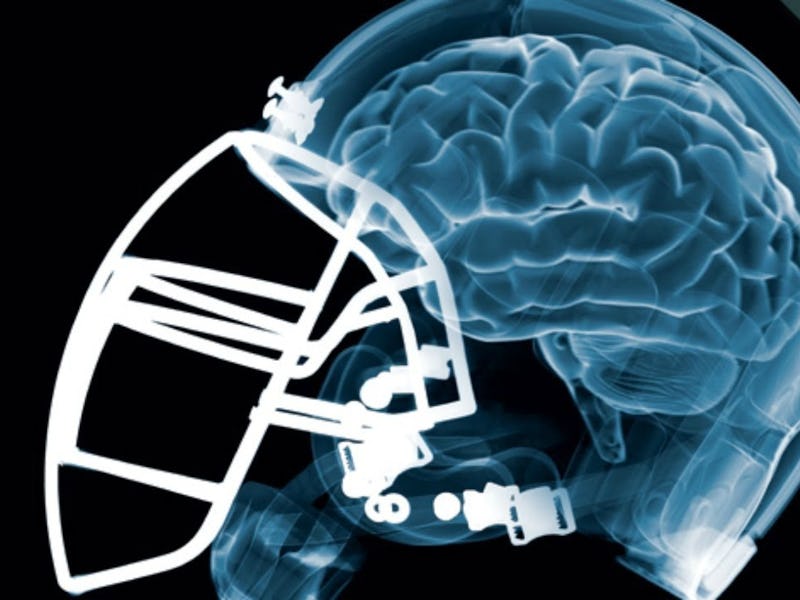Science Argues NFL Players Are Not Dumb Jocks
Science shows that brawn and brain are at least correlated.

Athletes, the thinking goes, are all dumb jocks. But science disagrees with the classic stereotype of the beefy, airheaded quarterback that is in any high school movie: Mounting evidence supports the idea that physical activity and sports are a key component of physical intelligence, and that maybe dumb jocks aren’t so dumb after all.
This isn’t new information, by any means. In 1936, a man named E. F. Wonderlic developed the first personality test that could measure cognitive ability. The Wonderlic test was originally meant to help companies find employees that had an aptitude for problem-solving. Through the years, however, it’s been adopted by the NFL. It makes sense: Football is a strategic game, and it helps to determine a player’s ability to understand intricate plays, handle immense pressure, and make quick decisions. It takes a lot more intelligence than one might think to lead a team to victory. For comparison, the average intellect among quarterbacks is a 24 out of 50 on the test; the average bank teller really only needs a 22.
“History shows that the brighter a person is, the more likely he is to be successful,” Michael Callans, president of Wonderlic Consulting, has said. “Whether they are on a football field or in a boardroom, smarter people are resourceful and they don’t make a lot of mistakes.”
That might seem to make sense in an office setting, but it might not be congruent to how we think about football players. In that respect, it can help to think about your brain as a muscle (even though it’s technically not): More physical activity leads to better cognitive function. In a 2008 study, 138 people over the age of 50 who were at risk of developing Alzheimer’s disease were monitored over an 18-month period. It was found that just 20 minutes of mild exercise a day — like going for a walk or gardening — improved a person’s cognitive ability significantly, and, in a few cases, complaints of forgetfulness entirely reversed.
But you don’t have to be elderly to get the cognitive benefits of exercise. Another study looked at the physical activity of 80 elementary school students using accelerometers. It found that children who walked to school or spent more time being active outside of school had better test results, an improved ability to plan, and performed tasks more quickly.
In other words, it’s not just rote memorization that these tests find helpful: It’s cognitive skills and ways people work to make themselves more efficient and productive. Although the brain is an organ, it behaves in a lot of ways like a muscle. It can be trained and strengthened and even physically altered, much like our muscles.
When we pump iron or run laps, we are sending oxygen and nutrients to the brain. In turn, the brain gets stronger alongside the body. Neurons fire faster, memory reserves get stronger, and frequent exercise can even prolong the aging process.
Physical activity has also shown to improve mental health and stave off major depression and anxiety disorders. A 2016 study found that after vigorous exercise for 20 minutes a day, glutamate levels (associated with neurological disorders) rose in the anterior cingulate cortex, which helps regulate heart rate, some cognitive functions, and emotion.
We can poke fun at gym rats, meatheads, or laxbros. We can say that football players are dumb, or wonder if all that tackling creates troubling brain disorders, even with a helmet. But at the end of the day, exercise is the smartest way to maintai a healthy brain, and that NFL player might even be smarter than you.